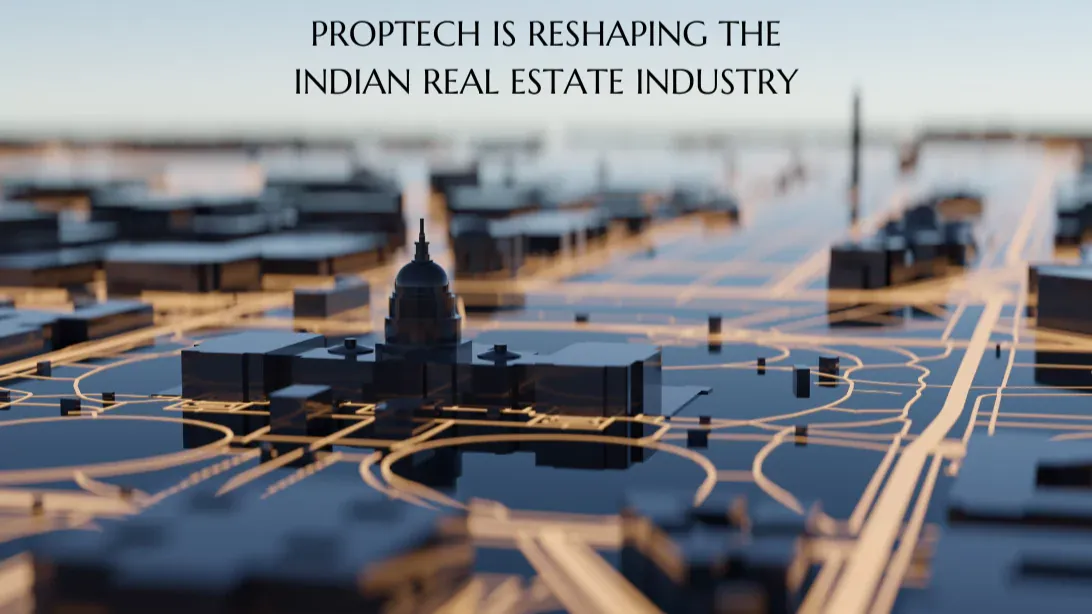The Digital Foundation: How Technology is Reshaping India’s Real Estate Landscape
The Indian real estate sector, traditionally rooted in physical interactions and paper-based processes, is undergoing an unprecedented digital revolution. Propelled by rapid urbanization, a tech-savvy consumer base, and a burgeoning ecosystem of innovative startups, technology is no longer a peripheral tool but the very backbone of modern real estate operations. This transformation, often encapsulated by the term “PropTech,” is enhancing efficiency, transparency, and accessibility across the entire property lifecycle.
The Rise of PropTech in India: Facts and Figures
The growth of PropTech in India is undeniable. The India PropTech market size was estimated at USD 1.91 billion in 2023 and is projected to grow to USD 2.5 billion in 2024, with forecasts indicating a remarkable expansion to USD 14 billion by 2035, exhibiting a robust CAGR of 16.955% (2025-2035). This surge is fueled by increased digital penetration in real estate transactions, government initiatives, and substantial investment in PropTech startups. Indeed, PropTech startups in India have reportedly raised over USD 1 billion in funding since 2020.
This digital shift is impacting every facet of real estate:
1. Enhanced Property Search and Discovery: Beyond the Broker
The first point of contact for most homebuyers and renters has irrevocably shifted online.
- Online Portals & Aggregators: Platforms like MagicBricks and NoBroker (India’s first PropTech unicorn, valued at over $426 million in funding) have revolutionized property search. They offer comprehensive listings with high-quality images, videos, and detailed descriptions.
- Advanced Filters & Interactive Maps: Buyers can now filter properties based on granular needs like location, price range, amenities, and even lifestyle preferences. Interactive maps allow users to explore neighborhoods and compare listings in real-time, significantly reducing the need for countless physical visits. It’s estimated that by 2025, 50-60% of property searches and transactions in urban areas will be facilitated through digital platforms.
2. Artificial Intelligence (AI) and Machine Learning (ML): The Smart Advisor
AI is rapidly becoming an indispensable tool for smarter decision-making in real estate.
- Property Valuation & Price Prediction: AI algorithms analyze vast datasets, including historical sales data, property conditions, neighborhood factors, social amenities, infrastructure, and even environmental factors (like pollution levels), to provide highly accurate property valuations. This helps buyers avoid overpaying and sellers set competitive prices. The AI in Real Estate Market is projected to reach $1803.45 billion by 2030 globally, growing at a CAGR of 35%, indicating its profound impact.
- Personalized Recommendations: AI-powered tools provide hyper-personalized property recommendations based on user preferences, past searches, and financial profiles, streamlining the search process.
- Lead Management & Customer Engagement: AI-driven chatbots and virtual assistants handle initial customer inquiries, qualify leads, and provide instant information, freeing up human agents for more complex interactions. Platforms like NoBroker’s CallZen.AI are a testament to this advancement in real estate CRM.
- Predictive Analytics: AI helps investors assess long-term profitability by analyzing market fluctuations, enabling data-driven investment decisions and proactive adaptation to changing market dynamics.
3. Virtual Reality (VR), Augmented Reality (AR), and 3D Tours: Immersive Experiences
These immersive technologies are transforming how properties are viewed and marketed, especially for under-construction or distant projects.
- Virtual Property Tours: Potential buyers can now take virtual walkthroughs of properties from anywhere in the world, at any time, using VR headsets or even smartphones. This is particularly useful for overseas buyers or those shortlisting properties. A survey by Magicbricks revealed that 88% of homebuyers find VR technology helpful in shortlisting properties without needing physical visits.
- AR for Interior Visualization: AR applications allow buyers to virtually furnish and decorate empty spaces, changing wall colors, furniture styles, and layouts in real-time. This helps them visualize the potential of a property before it’s even built.
- Reduced Need for Physical Showrooms: AR and VR can significantly reduce the need for expensive physical models and showrooms, saving developers considerable costs. The integration of AR/VR in the Indian real estate market is projected to grow at a CAGR of 30% from 2021 to 2026, with Goldman Sachs estimating VR and AR technologies could contribute up to $2.6 billion to the real estate sector in India by 2025.
4. Blockchain Technology: Trust and Transparency
While still in nascent stages of adoption compared to other PropTech areas, blockchain holds immense potential for the Indian real estate market, traditionally plagued by issues of transparency and fraud.
- Secure Property Titles: Blockchain creates an immutable, tamper-proof digital ledger of property records, significantly reducing title disputes and fraud.
- Smart Contracts: Automated execution of agreements (like property transfers and rental agreements) via smart contracts eliminates intermediaries, reduces paperwork, cuts costs, and speeds up transactions.
- Fractional Ownership (Tokenization): Blockchain enables the tokenization of real estate assets, allowing properties to be divided into digital shares. This lowers the entry barrier for investors and enhances liquidity in a traditionally illiquid market. Platforms like RealX in India are exploring this, allowing investors to own shares in vacation homes.
- Improved Efficiency and Global Accessibility: Blockchain streamlines various aspects of property management and transactions, making real estate investment more accessible globally.
5. Smart Home Technology and IoT: The Connected Living Experience
The demand for intelligent and connected living spaces is surging, transforming residential real estate.
- Integrated Home Automation: Smart homes in India are increasingly featuring pre-installed systems that allow seamless control over lighting, appliances, security, and climate via apps or voice commands (e.g., Alexa, Google Assistant).
- Energy Efficiency: Smart thermostats, automated lighting, and energy-monitoring plugs contribute to reduced energy consumption and lower utility bills, a significant selling point for eco-conscious and budget-aware buyers. The India home automation market size reached USD 3.56 billion in 2024 and is expected to reach USD 13.64 billion by 2033, growing at a CAGR of 16.10% during 2025-2033.
- Enhanced Security: Biometric door locks, real-time surveillance cameras, and AI-enabled alarm systems offer advanced security features, providing peace of mind to homeowners.
- Predictive Maintenance: IoT sensors can monitor property conditions in real-time, predicting maintenance needs before they escalate, thereby reducing costs and improving property longevity.
Challenges and the Path Forward:
Despite the rapid strides, challenges remain. These include data privacy concerns, the need for greater digital literacy among traditional real estate professionals, regulatory clarity for emerging technologies like blockchain, and the initial investment cost for advanced PropTech solutions.
However, the trajectory is clear. India’s real estate sector is actively embracing technology to become more efficient, transparent, and customer-centric. As digitalization penetrates deeper into urban and semi-urban areas, and as consumer expectations for seamless digital experiences continue to rise, technology will remain the most powerful catalyst for growth and innovation in the Indian real estate landscape.


